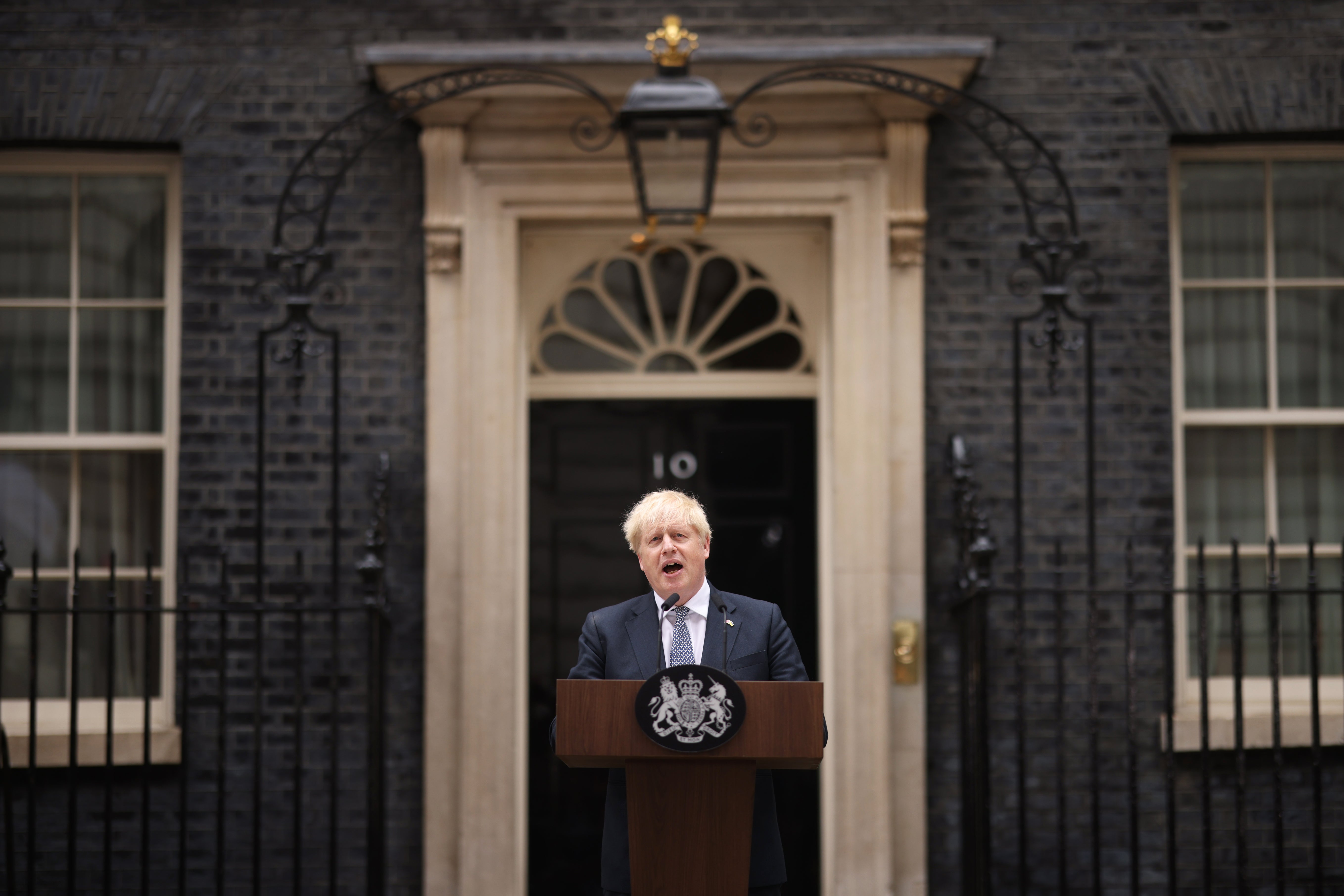There is no such thing as a ‘caretaker’ prime minister
There is still plenty of scope for Boris Johnson to preside over disagreements and chaos, as Sean O’Grady explains


Whatever you may have read, there is no such thing as a “caretaker prime minister” in Britain’s constitution. The office of prime minister is binary; you are either prime minister or you are not.
Boris Johnson is still prime minister. He is in possession of all the powers of patronage and royal prerogatives the role implies; he can declare war if he wants. He can appoint ministers or fire them. He can dish out honours and contracts, steer policy, initiate legislation, order a Covid lockdown. He can enjoy the perks and meet foreign leaders. It’s worth repeating: Mr Johnson is prime minister and will be for many weeks.
Some are suspicious of that. Sir John Major thinks it unsustainable, given that Mr Johnson has lost the confidence of his MPs and even his own government. Sir John prefers appointing someone such as Dominic Raab to be prime minister, on an interim basis, simply because Mr Johnson has no support. He might also think Mr Johnson can’t be trusted – whereas Mr Raab can – with the inviolable powers of a PM whom the Queen has asked to form a government in her name.
Dominic Cummings, for instance, suggests Johnson shouldn’t be allowed to stay in post a moment longer. He tweeted: “I know that guy & I’m telling you – he doesn't think it’s over; he’s thinking ‘there’s a war, weird s*** happens in a war, play for time play for time, I can still get out of this, I got a mandate, members love me, get to September...’ If MPs leave him in situ there'll be CARNAGE.”
There is much scope for future disagreements and splits, if only because of events. A PM without the support of his parliamentary party will find it difficult to take controversial decisions. The package of measures promised next week to deal with the cost of living crisis is a case in point. Will it be the same as the one Johnson agreed (or was trying to agree) with his previous chancellor, Rishi Sunak? Will it be full of reckless tax-cutting measures to cheer up Tory MPs and induce them to either soften their hostility or boost Nadhim Zahawi’s leadership campaign? Is it likely to be what Mr Johnson or Mr Zahawi’s successors would wish to do?
The usual assumption about a do-nothing “caretaker” premiership is that it will do nothing, but of course that can be a bad idea if the world changes and action is necessary. What if the war in Ukraine escalates or widens?
The last lame-duck premiership was Theresa May’s two months between her resignation on 24 May 2019 and the election of Mr Johnson as her replacement on 23 July. It still behaved as a government, indeed with an added urgency to find some quick achievements for the outgoing PM.
During those two months she tried to cement her legacy but found herself in “negotiations” with chancellor Phillip Hammond. May wanted to boost spending in schools, but Hammond demanded concessions on Brexit (to make it softer). Hammond also wanted to consult the two final candidates in the leadership contest, Johnson and Jeremy Hunt. During May’s last weeks in power she tried to avoid Brexit, having failed to secure a compromise in the preceding two years, but that wasn’t sustainable or in the national interest. David Cameron also stayed on after his post-referendum resignation in 2016 until May was anointed as leader, but virtually hid for the duration.
The only real “caretaker” government was led by Churchill towards the end of the wartime coalition in 1945. After Labour withdrew in preparation for the general election (a move Churchill opposed), Churchill headed a brief all-Conservative administration between May and July 1945. In essence it was similar to when ministers continue in office during the period of any general election, a period when, anomalously, they are no longer MPs.
So the final days of this administration, headed by its scandal-prone PM, might prove more troubling than is assumed. It might not react properly to the looming economic crisis, summer strikes, emerging Covid wave and deepening conflict in eastern Europe; it might make fresh mistakes and provoke more controversy, perhaps by triggering Article 16 or passing provocative anti-union laws. The flexibility of Britain’s constitution means it isn’t well-suited to such situations as this. There isn’t even a formal procedure for someone to be “acting” prime minster while the incumbent is incapacitated. This was why there was some confusion about who was running the country when Mr Johnson fell ill with Covid, even with the existence of a deputy prime minister, Dominic Raab. Like much of Johnson’s career, it is ending messily.



Join our commenting forum
Join thought-provoking conversations, follow other Independent readers and see their replies
Comments